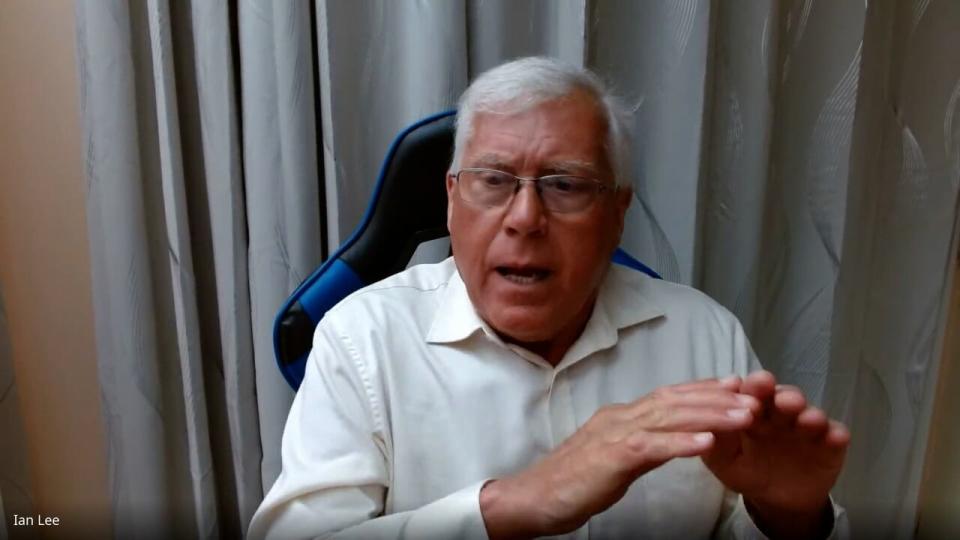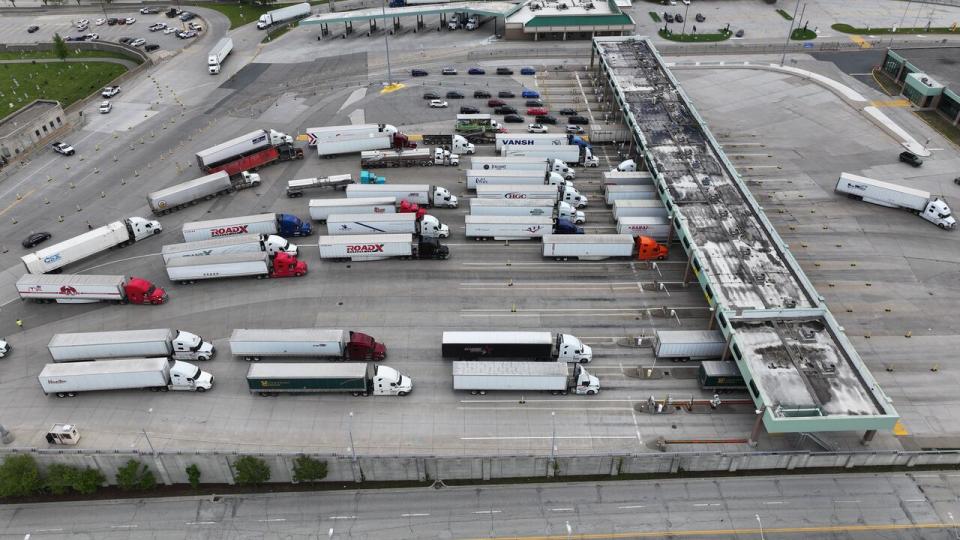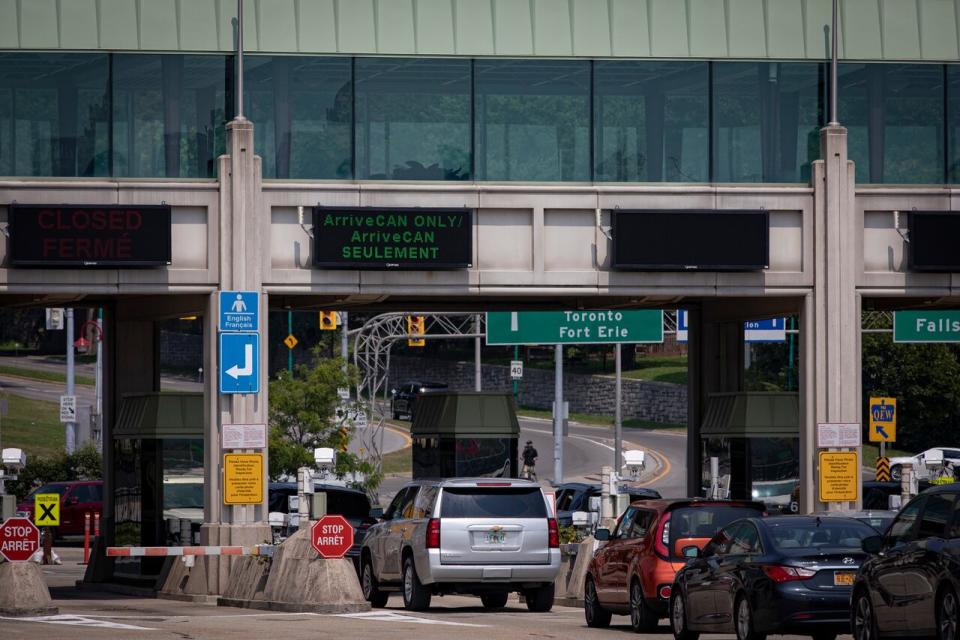CBSA work-to-rule would create 'chaos,' quick government response, professor says
Starting Friday, roughly 9,000 Canada Border Services Agency (CBSA) workers will be in a legal strike position with the Treasury Board of Canada — which oversees the CBSA.
That's if mediation fails between the two sides. They started that process on Monday.
However, because they're deemed an essential service they cannot strike.
Work-to-rule is a strong possibility, according to Carleton University associate professor of management Ian Lee.
He thinks it would create chaos at border crossings and checkpoints by applying all of the rules within their discretion — such as asking every possible question to each vehicle, impounding vehicles and checking luggage without a search warrant.

"You can create tremendous lineups of those trucks and tremendous lineups of people. It'll be very, very disruptive if they do work-to-rule, because so many people cross that border every day."
Lee says unlike many government jobs, borders are extremely visible, meaning it will be impossible not to notice any disruptions because of job action.
"It has an immediate impact … especially trucks that bring stuff into Canada. And 90 per cent of all the goods that are in Canada come in on trucks, those big 18-wheeler trucks."

Last month, members of the Public Service Alliance of Canada (PSAC)-affiliated Customs and Immigration Union (CIU) voted 96 per cent in favour of strike action, according to the union.
PSAC says it still hopes to avoid job action and border disruptions but has set a deadline of 4 p.m. ET on Friday.
Government 'fully committed' to reaching a deal
According to a Wednesday afternoon statement from the Treasury Board of Canada Secretariat, about 90 per cent of workers occupy essential service positions and must continue to provide services.
"Border services group employees provide important services to Canadians and the government is fully committed to reaching an agreement that is fair for them and reasonable for taxpayers, just like similar agreements already reached with 17 bargaining units and covering more than 80 per cent of the public service," the statement read.
The statement said the government is "prepared to make concessions but there needs to be movement on both sides."
"We are disappointed that PSAC has threatened labour disruptions when we are ready and willing to negotiate and reach a fair agreement through good faith bargaining."
The unions say key issues include pay parity with other law enforcement agencies, flexible telework and remote work options, automation, pension benefits and stronger workplace protections.
CIU president Mark Weber says there's been little progress at the bargaining table.
"This is just about getting us what almost all other law enforcement already has," Weber said. "This is about... getting us the ability to retire without penalty after 25 years, which all other law enforcement and most public safety has, basic protections around excessive discipline, basic protections around contracting out."
Webber says they want pay equity with the RCMP, which he says they currently fall short of by about 15 per cent.
PSAC says job action three years ago by border agency personnel "nearly brought commercial cross-border traffic to a standstill, causing major delays at airports and borders across the country."
Concerned trucking company
A Windsor, Ont.,-area trucking company is concerned about potential border job action slowing down their deliveries.
Onfreight Logistics, out of Tecumseh, makes shipments primarily in the automotive industry, along with other items such as alcohol.
Asset and fleet safety manager Jim Pereira says it could end up being costly.
"We're talking about schedule issues with operations and customers and trying to get drivers to their locations on time," he said.

Pereira says costs could include paying drivers long during extended wait times, financial penalties with customers and having extra drivers on hand.
He says it ends up as a trickle-down effect in the industry.
"Work-to-rule can slow things down, and then it just dominoes."
Pereira says a 10-minute delay at the Ambassador Bridge border crossing can easily turn into an hour or more based on the wait times.
'The public will get very angry'
Lee believes the response to any job action or work-to-rule by border service employees will be "very quick" once the media puts out visuals of long lines for public consumption.
"The public will get very angry and start yelling at the MPs and the cabinet ministers and the prime minister. They will feel the heat very, very quickly."
And he thinks they'll move just as fast.

"They can order a binding arbitration imposed on the two parties meeting on the Treasury Board and the CBSA, or they can legislate these people back to work and to stop doing what they're doing."
Lee says anyone in the transportation sector will be legislated back to work.
"It has such a profoundly negative impact on the economy and on and on the greater good that even if you had the right to strike de facto, you don't."


